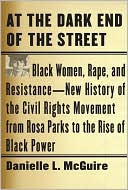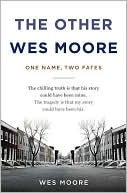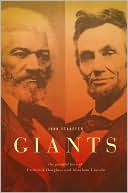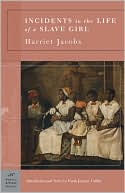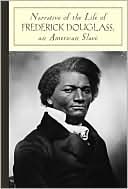At the Dark End of the Street: Black Women, Rape, and Resistance--A New History of the Civil Rights Movement from Rosa Parks to the Rise of Black Power
Search in google:
Rosa Parks was often described as a sweet and reticent elderly woman whose tired feet caused her to defy segregation on Montgomery’s city buses, and whose supposedly solitary, spontaneous act sparked the 1955 bus boycott that gave birth to the civil rights movement. The truth of who Rosa Parks was and what really lay beneath the 1955 boycott is far different from anything previously written. In this groundbreaking and important book, Danielle McGuire writes about the rape in 1944 of a twenty-four-year-old mother and sharecropper, Recy Taylor, who strolled toward home after an evening of singing and praying at the Rock Hill Holiness Church in Abbeville, Alabama. Seven white men, armed with knives and shotguns, ordered the young woman into their green Chevrolet, raped her, and left her for dead. The president of the local NAACP branch office sent his best investigator and organizer to Abbeville. Her name was Rosa Parks. In taking on this case, Parks launched a movement that ultimately changed the world.The author gives us the never-before-told history of how the civil rights movement began; how it was in part started in protest against the ritualistic rape of black women by white men who used economic intimidation, sexual violence, and terror to derail the freedom movement; and how those forces persisted unpunished throughout the Jim Crow era when white men assaulted black women to enforce rules of racial and economic hierarchy. Black women’s protests against sexual assault and interracial rape fueled civil rights campaigns throughout the South that began during World War II and went through to the Black Power movement. The Montgomery bus boycott was the baptism, not the birth, of that struggle. At the Dark End of the Street describes the decades of degradation black women on the Montgomery city buses endured on their way to cook and clean for their white bosses. It reveals how Rosa Parks, by 1955 one of the most radical activists in Alabama, had had enough. “There had to be a stopping place,” she said, “and this seemed to be the place for me to stop being pushed around.” Parks refused to move from her seat on the bus, was arrested, and, with fierce activist Jo Ann Robinson, organized a one-day bus boycott.The protest, intended to last twenty-four hours, became a yearlong struggle for dignity and justice. It broke the back of the Montgomery city bus lines and bankrupted the company.We see how and why Rosa Parks, instead of becoming a leader of the movement she helped to start, was turned into a symbol of virtuous black womanhood, sainted and celebrated for her quiet dignity, prim demeanor, and middle-class propriety—her radicalism all but erased. And we see as well how thousands of black women whose courage and fortitude helped to transform America were reduced to the footnotes of history.A controversial, moving, and courageous book; narrative history at its best.Publishers WeeklyMcGuire's "new history" shines fresh light upon the germinal role of black women in the birth and development of the civil rights movement. "For decades," she writes, "the Montgomery bus boycott has been told as a story triggered by Rosa Parks's spontaneous refusal to give up her seat followed by the triumphant leadership of men." McGuire, assistant professor of history at Wayne State University, goes behind that story to tell of black women's struggles against abuse by white bus drivers and police officers that launched the boycott. She foregrounds black women's experiences of "verbal, physical, and sexual abuse" as prime movers of the grassroots movement. From the rape of Recy Taylor (1944) to the rape of Joan Little (1975), McGuire restores to memory the courageous black women who dared seek legal remedy, when black women and their families faced particular hazards for doing so. McGuire brings the reader through a dark time via a painful but somehow gratifying passage in this compelling, carefully documented work. (Sept.)
List of IllustrationsPrologueChapter 1 "They'd Kill Me If I Told" 3Chapter 2 "Negroes Every Day Are Being Molested" 40Chapter 3 "Walking in Pride and Dignity" 69Chapter 4 "There's Open Season on Negroes Now" 111Chapter 5 "It Was Like All of Us Had Been Raped" 131Chapter 6 "A Black Woman's Body Was Never Hers Alone" 156Chapter 7 Sex and Civil Rights 174Chapter 8 "Power to the Ice Pick!" 202Epilogue "We All Lived in Fear for Years" 229Acknowledgments 235Notes 239Bibliography 285Index 311
